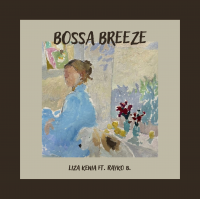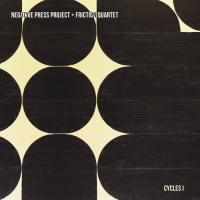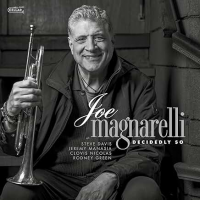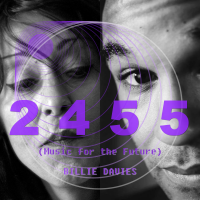Home » Jazz Articles » Album Review » David Lopato: Short Stories
David Lopato: Short Stories
Whatever else one does, it is useless to pigeonhole Lopato's music, as there may be straight-ahead jazz one moment and old-line swing the next, followed by a Buddhist meditation, an avant-garde locution, Latin-centered rhythms, a New Orleans vibe, and even an intense and romantic ballad or two. After opening with Wayne Shorter's fast-paced "Prince of Darkness," the album focuses exclusively on compositions by Lopato, eight in all, including tributes to the late Chick Corea and South African president Nelson Mandela. The graceful "For Chick," on which Lopato shows his mastery of the keyboard while enhancing lustrous solos by clarinetist Lucas Pino, trombonist Ed Neumeister and bassist Ratzo Harris , leads to the spasmodic swinger, "Stuttersteppin,'" on which Lopato and drummer Michael Sarin take charge.
"Through the Veil," which opens softly, is a Buddhist-inspired theme that mixes contemporary jazz with avant-garde improvisation, mainly by Pino (on soprano sax) and Neumeister whose trombone gymnastics lend a "singing" ambience to a wordless vocal by Anson Jones (who is present but basically inaudible on "Papagayo"). Lopato's homage to Mandela, "Nelson," swings hard all the way and features dazzling section work behind heated solos by Pino (on tenor sax), Neumeister and Sarin. That leads to the gossamer ballad "Clarity" (nicely introduced by Harris with Pino shining again on clarinet) and bluesy "Looking for Mr. Babar," a Crescent City-inspired melange whose Dixie spirit is underscored by Harris and Lopato who solo with perception and assurance, and by Neumeister and Pino whose nimble exchanges foreshadow the attractive out-chorus.
Percussionist Bobby Sanabria places his indelible stamp on the midsection of "Papagayo," a buoyant samba wherein Lopato and Pino (on tenor) also excel. Pino returns to clarinet to brighten "The Glass Ceiling," a mellow ballad that rings down the curtain on an exemplary session. While sorting Lopato's themes may be pointless, it should be noted that they are equal parts intrepid and seductive, and his Short Stories are well worth perusing.
Track Listing
Prince of Darkness; For Chick; Stuttersteppin’; Through the Veil; Nelson; Clarity; Looking for Mr. Babar; Papagayo; The Glass Ceiling.
Personnel
David Lopato
pianoLucas Pino
saxophone, tenorEd Neumeister
tromboneRatzo Harris
bassMichael Sarin
drumsBobby Sanabria
congasRogerio Boccato
percussionKeita Ogawa
percussionAnson Jones
vocalsAlbum information
Title: Short Stories | Year Released: 2024 | Record Label: Self Produced
Tags
PREVIOUS / NEXT
Support All About Jazz
 All About Jazz has been a pillar of jazz since 1995, championing it as an art form and, more importantly, supporting the musicians who make it. Our enduring commitment has made "AAJ" one of the most culturally important websites of its kind, read by hundreds of thousands of fans, musicians and industry figures every month.
All About Jazz has been a pillar of jazz since 1995, championing it as an art form and, more importantly, supporting the musicians who make it. Our enduring commitment has made "AAJ" one of the most culturally important websites of its kind, read by hundreds of thousands of fans, musicians and industry figures every month.
































